The Bay Area sports world is filled with hype and excitement as the San Francisco 49ers elected to trade up and select a top NFL draft prospect, Trey Lance. This keen move by the front office has many fans thrilled about the present and future of the club.
The same cannot be said about the outlook on the San Jose Sharks. Presently, the club likely picks between 8th-11th in the upcoming NHL Draft, unless they miraculously win a lottery for a higher pick. The San Jose front office and coaching staff did not commit to a plan for the season. The team will not be able to contend for a playoff spot and will not receive a highly touted prospect for their troubles.
At the forefront of the glum outlook for the Sharks is general manager (GM) Doug Wilson. He kept the Sharks as contenders for numerous years, as this season will mark just the third time San Jose missed the playoffs since the 2004-05 lockout.
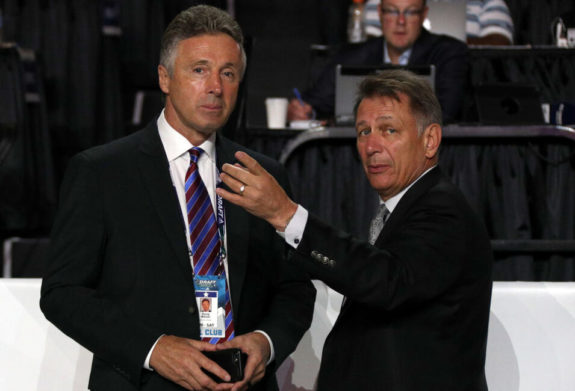
The Sharks have numerous rough and long-term contracts as a result of this constant contention. However, Wilson’s commitment to his long-time core of Logan Couture, Marc-Edouard Vlasic, and Brent Burns has led to the downfall of the hockey club. With these, and other, players locked up for the better part of their 30s, it’s hard to be optimistic about the team when these players cannot lead the current team to the playoffs. These contracts are only going to age worse.
So, should Wilson be fired as a result of his bad contract structure leading to the demise of the team? Should owner Hasso Plattner discount the many years of playoff contention because of recent poor moves by Wilson?
Let’s go through the recent moves by the Sharks’ GM to see how his recent moves have impacted the current roster. This will be exclusively trades, waiver decisions, and signings. Drafting is handled by Doug Wilson Jr. and Tim Burke.
The Good
In recent times, Wilson has still made quality decisions that have made the team much better for the present and the future. Let’s look at the last two trade deadlines, when the Sharks made moves toward building a better future. The best of these, in my opinion, was at the 2020 NHL Trade Deadline when the team dealt Barclay Goodrow and a late third-round pick for a first-round selection. Although the pick ended up being the 31st-overall selection, the trade was great from the Sharks’ perspective.
Also at that deadline, the Sharks dealt Patrick Marleau to the Pittsburgh Penguins for a 2021 third-round selection. Wilson then flipped that pick for Ryan Donato. So, the GM netted a young forward who’s a shootout specialist and near half-a-point-per-game player for a rental that later returned to San Jose.
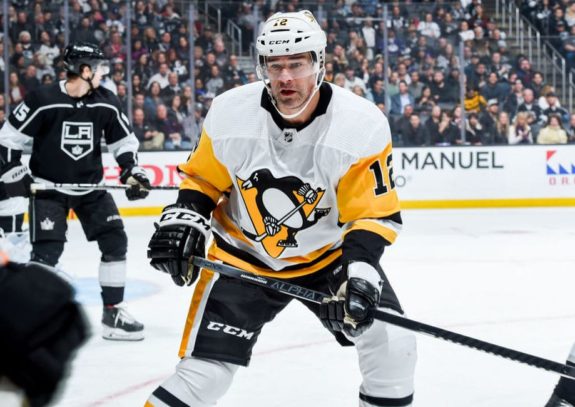
Again, at the 2020 Deadline, Wilson moved Brenden Dillon for a second- and third-round selection. After movement at the 2020 Draft, these picks netted the Sharks Brandan Coe and Tristan Robbins, two of the team’s better prospects.
This season, Rudolfs Balcers was acquired via waivers from the Ottawa Senators, and has seven goals and 16 points through 34 games. Recently turning 24, he’s been a pleasant surprise this season. At the 2021 NHL Trade Deadline, I feel Wilson was quite positive. He mainly took on money in cap space in order to acquire draft capital.
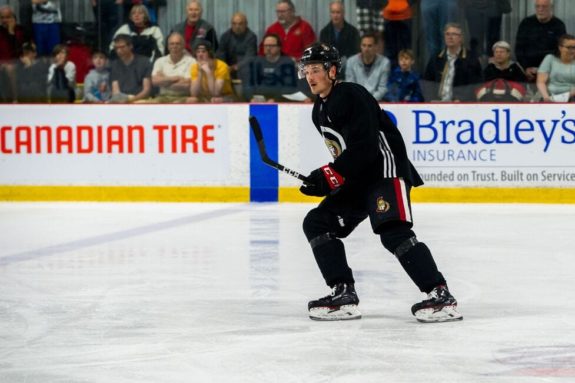
It needs to be emphasized, the Sharks franchise would not be close to what it is without Wilson’s impacts. This season will mark the first time missing consecutive postseasons since 1996-97, and the first time ever under Wilson. Obviously, the goal is to win the Stanley Cup, and Wilson’s teams have failed, but he should have the benefit of nearly two decades of success in San Jose when being considered for firing.
The Bad
Like most GMs, Wilson has his fair share of bad decisions. I mainly have some of his infamous, long-term contracts in this slot.
One contract that does not get enough talk as an overpay is Kevin Labanc’s four-year extension that carries a $4.75 million cap hit. His prior contract was a huge underpay, with the youngster betting on himself and taking a one-year extension worth just $1 million after a breakout 2018-19 season.
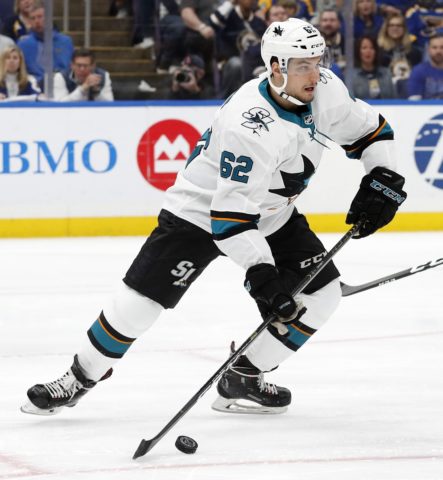
In the 2020 offseason, the deal was believed to be either average or good for the Sharks, with Wilson touting the young winger as a future 60-point player. In his second season as a top-6 forward, Labanc has not looked to be that, unfortunately. He had a hot start this year, but has cooled down, and the contract looks to be an overpay.
Evander Kane, while a consistent 20-goal scorer and on pace for 32 goals in a normal season, has a large contract the Sharks will surely regret later. Turning 30 years old in August, his play will eventually plateau, if not regress, and his contract’s $7 million cap hit until the 2024-25 season cripples the team’s cap space.
Speaking of harmful contracts to the team’s salary cap space, Brent Burns will also be paid until the 2024-25, costing $8 million per year. His defensive faults become more prominent with every season, and with 27 points this season, he appears to have lost his elite offensive ability. This has been most noticeable on the power play, where the Sharks have struggled mightily to be effective. Burns has already lost his elite playing ability and he will be under contract until age 40.
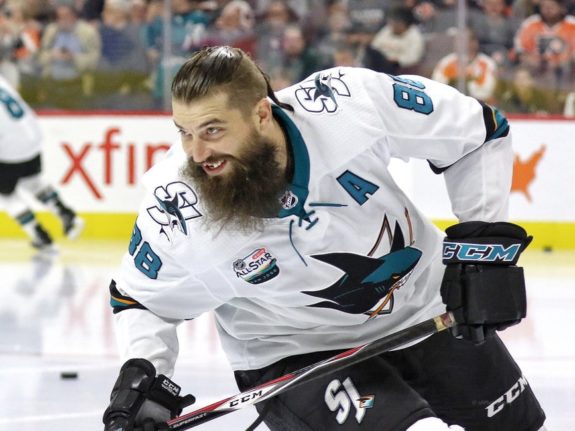
Captain Logan Couture’s $8 million salary until 2026-27 will also be rough for the Sharks for a long time. In just year two of his eight-year extension, he is on pace for 49 points in an 82-game season. This hard regression from the captain will be tough for the team who pays him to be an elite center.
It should be noted, these large contracts look much worse due to the salary cap situation in the NHL. The salary cap was expected to be $83 million in the 2019-20 season, and have a significant increase for the 2021-22 season when the NHL signed a new television rights contract. However, due to constraints with the league and current financial trouble related to the pandemic, the cap is likely set at $81.5 million for the foreseeable future.
The Erik Karlsson trade was also a rough deal for the Sharks. The deal included conditional picks, a 2021 second-round pick, Josh Norris, Chris Tierney, and Dylan DeMelo. The second-round selection will surely be around 40th overall, and in addition to the young roster players, the Sharks gave up a quality prospect.
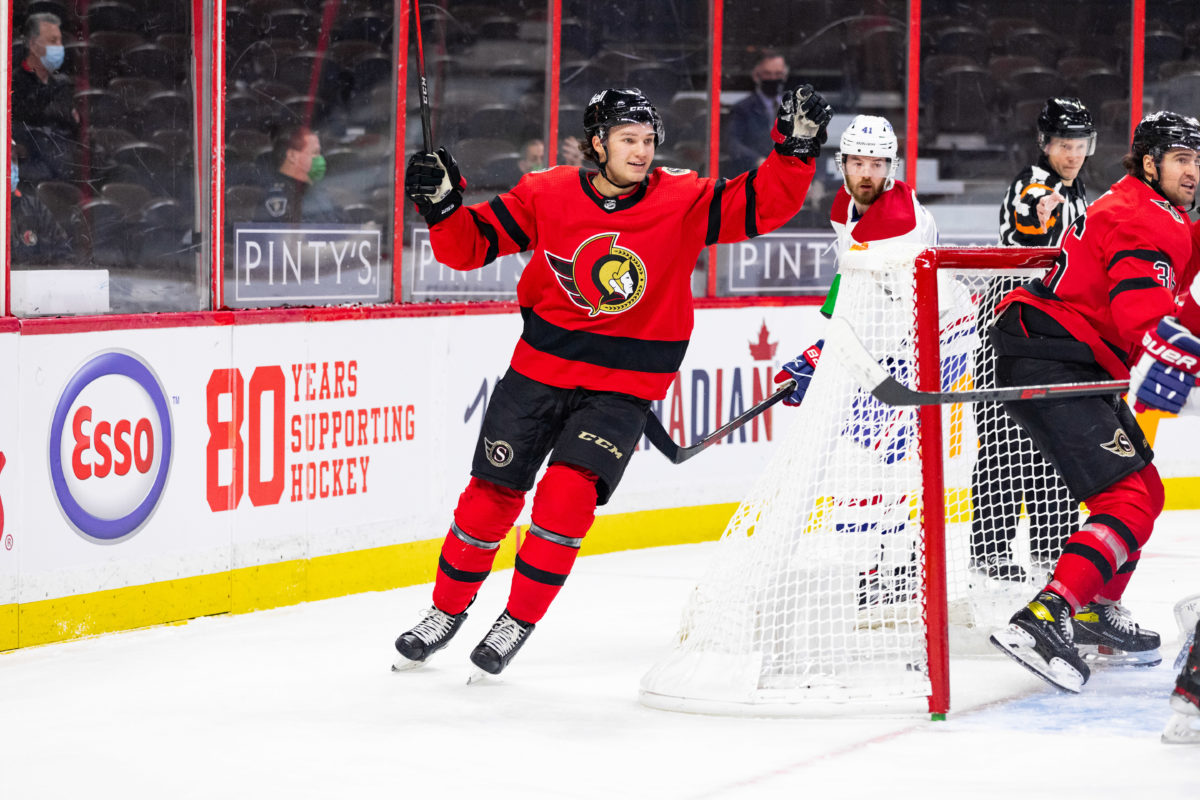
Norris, 21 years old, has 15 goals and 32 points in 50 games this year. Especially when the Sharks lack a quality third-line center to provide offensive depth, this loss is brutal for San Jose. Karlsson’s play has never hit the level it was in Ottawa when he won two Norris Trophies and was considered a top player in the league.
The Inexcusable
If the list of Wilson’s flaws ended there, I think there would be significantly fewer people calling for his firing in the comment section below. However, there are three contracts given out by the GM that are inexcusable and will hinder the Sharks’ future for years to come.
Martin Jones, still signed for three seasons after 2020-21, has struggled largely during the last three regular seasons. He hit a remarkable pace in March, carrying a .922 save percentage for the month. However, he’s followed that up with being pulled three times in April and breaking his previous record with being pulled eight times season… and it’s a shortened season.
He has a $5.75 million cap hit through 2023-24, and his recent play has seen him lose the starting job to 23-year-old Josef Korenar. This is entirely speculation, but I could see the 31-year-old heading for a buyout in the next offseason.
Next up, Marc-Edouard Vlasic has done nothing but struggle since his eight-year contract began in 2018-19. His regression has led to him being a third-pairing defenseman. Paying a third-pairing defenseman, whose play will only regress until 2025-26, is not what you’d want to see.
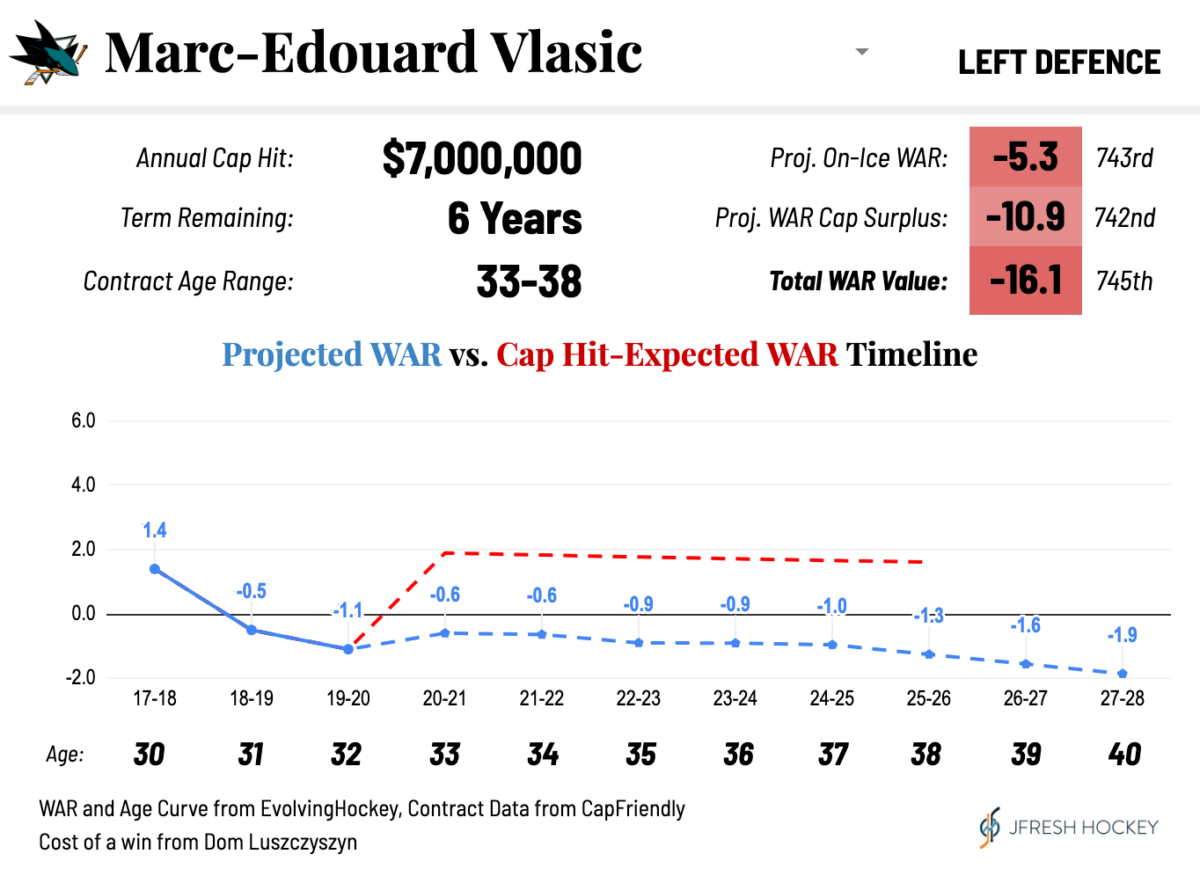
And to make matters worse, Vlasic has a full no-movement clause. Not only does his $7 million cap hit make him near impossible to move, but he would need to waive a clause in his contract to be traded or sent through waivers. Given the length and structure of the contract, I cannot see a buyout until the 2023 or 2024 offseasons, lest the team carry a cap penalty into the late 2020s or early 2030s.
And, what every Wilson hater has been waiting for me to mention — he handed an eight-year, $11.5 million contract to Erik Karlsson in the 2019-20 offseason. With the largest cap hit of a defenseman in the NHL, he’s looked far from the best in the league, and he has six more seasons on his contract following 2020-21.
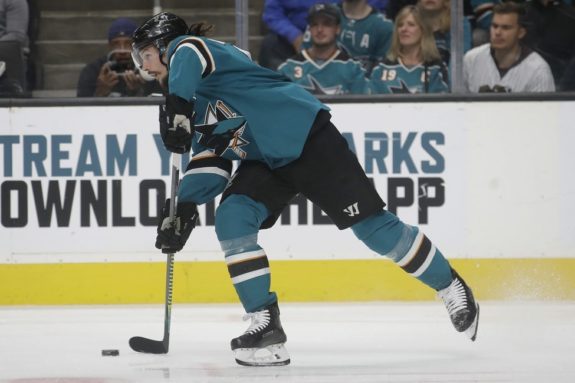
In addition to the long-term future of paying Karlsson who’s struggled to be an elite defenseman on both ends of the ice, the re-signing met the conditions to send a 2020 first-round selection to the Ottawa Senators. That pick wound up becoming third overall. Tim Stutzle, selected with that pick, is a premiere offensive talent who has put up half-a-point per game at just 19 years old.
Again, I need to emphasize that Wilson likely thought the NHL’s salary cap would be significantly higher, likely increasing every year, and these contracts would not be as bad. However, the flat salary cap for the future makes these bad contracts some of the worst in the league.
Wilson’s Future
So, what does this mean for Wilson’s future? Will the team and Hasso Plattner discount the years of playoff success and focus on the recent woes and fire the long-time GM? The team’s owner announced in January of 2020 that Wilson had his full support, but that may have changed given the team’s little improvement in 2020-21.
Wilson, at the halfway point of this season, announced that he viewed 2020-21 as a reset for the team, that he wanted young players to take on prominent roles and grow, so that the club could perform better in the 2021-22 season.
I feel there’s some issues with that logic, however. I do not see the reason for bringing in veterans Devan Dubnyk, Patrick Marleau, and Matt Nieto if that was the plan. These older players took up valuable roster spots that are great for developing talent. If Wilson wanted to develop players, why did he sign people to take roster spots from young players?
And, if this “reset” was the plan entering the season, the coaching staff and front office are clearly not on the same page. Young and inconsistent forwards, such as Timo Meier, John Leonard, Donato, Labanc, and others often see themselves in lesser roles than veterans who’ve done little to warrant large roles in the lineup.
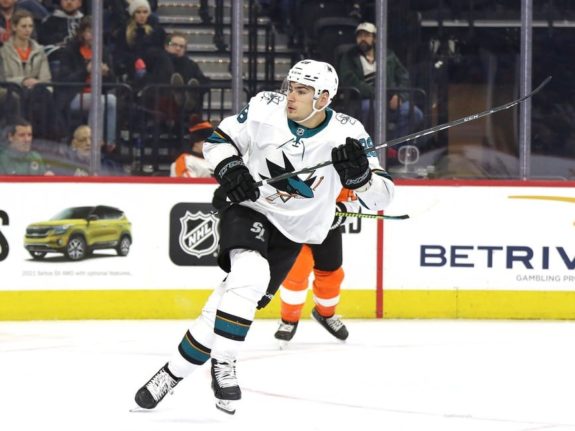
If Wilson wants the young players to develop, should he not ask Bob Boughner to utilize the young talent in large roles? This lack of communication does not look good considering Wilson locked down the coaching staff to three-year deals last offseason.
Regardless, the Sharks are one of the worst teams in the league defensively, and the long-term defense and goaltending contracts will further these issues. While I feel indifferent, I very much see the argument for firing the GM.
The largest issue I see with firing Wilson is that I cannot see any quality candidates wanting the job. Sure, Thomas Bordeleau and Ozzy Wiesblatt will be fun players in the future, and the high 2021 selection would allow any GM to shape the future of their franchise, but the huge amount of money locked up into Vlasic, Burns, Couture, and Karlsson prohibits any GM from shaping the club.
Would a quality prospective general manager want to take over a team littered with long-term contracts that could prevent them from keeping quality talent they would want to build around? Wilson’s firing would not take the poor contracts with him.
So, if Wilson stays, he absolutely needs to get rid of one large contract ahead of the 2022 offseason. Per CapFriendly, at the 2022 offseason the Sharks will have $21 million in cap space, with key wingers like Balcers, Donato, and others needing contracts the season prior, with Tomas Hertl, Mario Ferraro, and John Leonard all needing extensions.
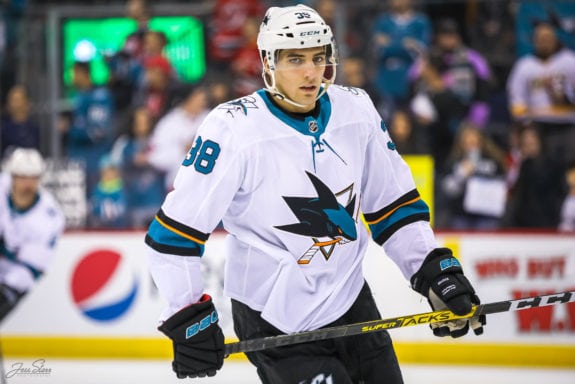
If Wilson’s prior faults make him unable to retain key pieces such as Ferraro and Hertl, I absolutely see Wilson leaving. The GM needs to shed a large contract via the expansion draft, a contract buyout, or trade in order to remain with the organization.